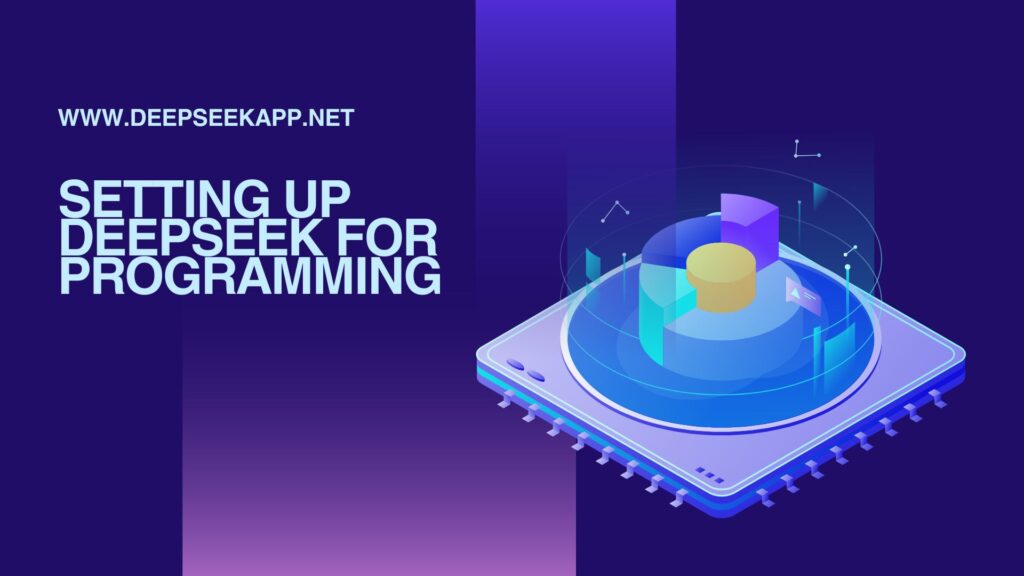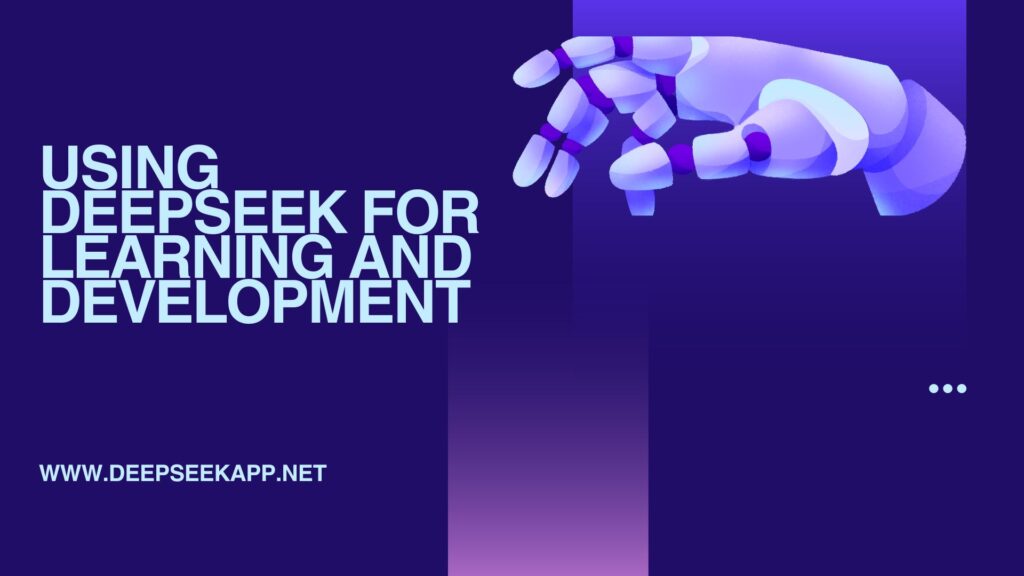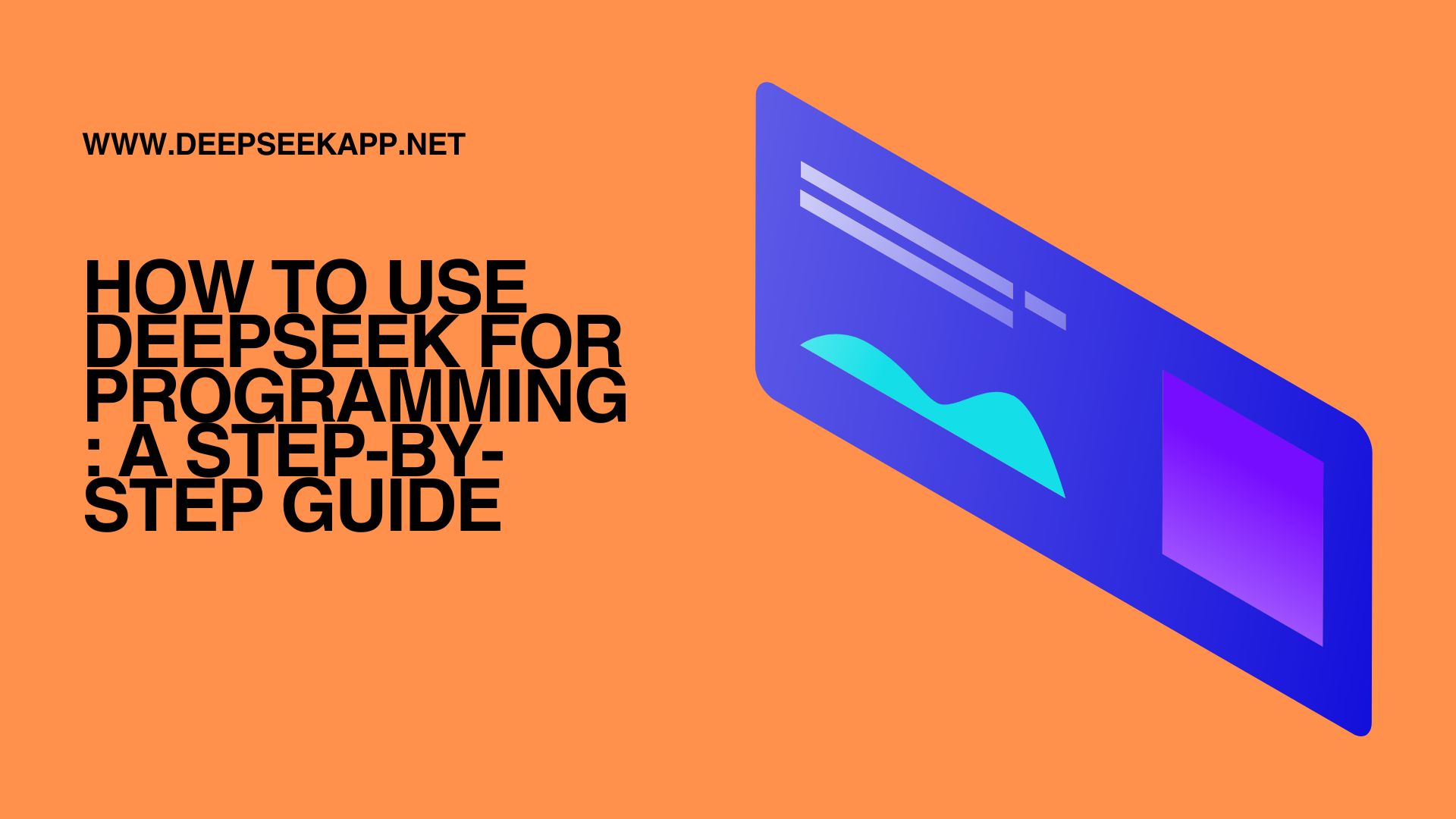DeepSeek has emerged as one of the most powerful and cost-effective artificial intelligence tools for developers. Its open-source large language models (LLMs) are revolutionizing the way we approach programming, providing enhanced assistance for coding, debugging, and development tasks. This step-by-step guide will walk you through how to use DeepSeek effectively for programming.
1. Introduction to DeepSeek and Its Capabilities
Before diving into the specifics, it’s essential to understand what DeepSeek is and why it’s a valuable tool for programmers.
DeepSeek is an artificial intelligence company that specializes in developing advanced LLMs, particularly DeepSeek-R1, known for its impressive performance at a fraction of the cost of other major AI models like GPT-4. These models can assist in various programming tasks, from writing code to solving complex problems. The focus on open-source accessibility makes DeepSeek an attractive option for developers seeking flexibility and affordability.
2. Setting Up DeepSeek for Programming

To begin using DeepSeek for programming, follow these initial setup steps:
a. Download the DeepSeek App or Access the API
- DeepSeek is available as a free chatbot app on both iOS and Android platforms, making it easy for mobile users to access. For desktop programming, developers can interact with DeepSeek via its API.
- Visit the official website of DeepSeek or the app stores to download the app and get started.
b. Sign Up and API Key Setup
- If you’re using the DeepSeek API, you’ll need to create an account and generate an API key to integrate DeepSeek with your code editor or IDE (Integrated Development Environment).
- Follow the instructions on DeepSeek’s website to authenticate and configure the API with your development tools.
3. Using DeepSeek for Code Assistance
DeepSeek can help with a variety of programming tasks. Here’s how you can leverage its capabilities:
a. Code Generation and Suggestions
- DeepSeek excels at generating code snippets for different programming languages. Whether you’re working in Python, JavaScript, Java, or others, DeepSeek can help by writing boilerplate code, generating functions, or even suggesting algorithms based on the problem you’re working on.
- Simply input your coding task or request into the DeepSeek app or API, and it will return a well-structured code snippet.
b. Debugging and Error Fixing
- One of the most powerful features of DeepSeek is its ability to analyze your code and find bugs or issues. By pasting your code into the tool, you can get suggestions on what might be wrong, along with potential fixes.
- It can also help you understand common error messages and provide solutions based on context.
4. Advanced Features for Programmers
DeepSeek isn’t just for basic tasks—its advanced features can significantly boost your productivity. Some of these features include:
a. Code Refactoring
- DeepSeek can assist in refactoring your code to make it cleaner, more efficient, and easier to maintain. It can suggest better variable names, reduce repetitive code, and optimize algorithms for performance.
b. API Integration
- If you’re working on an application that requires third-party API calls, DeepSeek can help you write the necessary code to integrate APIs into your project. Whether it’s for consuming RESTful APIs or connecting to databases, DeepSeek can generate the code you need.
c. Customizable Responses for Specific Frameworks
- DeepSeek’s flexibility allows you to tailor responses based on the specific frameworks or libraries you’re using. Whether you’re building with Django, React, or Flask, DeepSeek can suggest framework-specific code snippets, enhancing your development workflow.
5. Using DeepSeek for Learning and Development

DeepSeek can also be a valuable learning tool for new programmers. Here’s how you can use it for education:
a. Code Explanations
- If you’re stuck on understanding how a particular piece of code works, you can ask DeepSeek to explain it. It will break down complex logic and walk you through the reasoning behind each line of code, making it easier to grasp programming concepts.
b. Practice Problems and Solutions
- DeepSeek can generate coding problems for you to practice, followed by step-by-step solutions. Whether you’re preparing for an interview or just improving your skills, DeepSeek can offer personalized challenges to test your knowledge.
6. Integrating DeepSeek into Your IDE
DeepSeek’s API allows for seamless integration into popular code editors like Visual Studio Code, PyCharm, and IntelliJ IDEA. Here’s how to set it up:
a. Install Necessary Plugins
- Some IDEs may have plugins or extensions that allow you to directly integrate DeepSeek with your development environment. Check for available plugins in your IDE’s marketplace or repository.
b. Connecting the API
- Once you’ve set up the API key, you can configure the connection in your IDE. This will enable you to get real-time code suggestions, refactoring tips, and debugging advice while coding.
7. Best Practices for Using DeepSeek Effectively
To make the most out of DeepSeek, consider the following best practices:
a. Be Specific with Your Requests
- To get accurate and helpful responses, be as specific as possible in your queries. For example, instead of asking “How do I write a function?”, try asking “How do I write a function in Python that returns the factorial of a number?”
b. Iterate and Refine
- DeepSeek is a tool that thrives with iterative inputs. If the initial response isn’t exactly what you need, refine your question or provide more context until you get the desired result.
c. Double-Check Results
- While DeepSeek is highly accurate, it’s always a good idea to review generated code carefully. Ensure that it fits with your project’s standards and requirements.
8. Conclusion
DeepSeek offers a range of powerful features that can assist programmers at every stage of the development process. Whether you’re generating code, debugging, learning new concepts, or refactoring your project, DeepSeek can save you time and effort while improving the quality of your work. With its open-source nature, it’s a great tool for both beginners and experienced developers alike. Start using DeepSeek today and elevate your programming capabilities!

